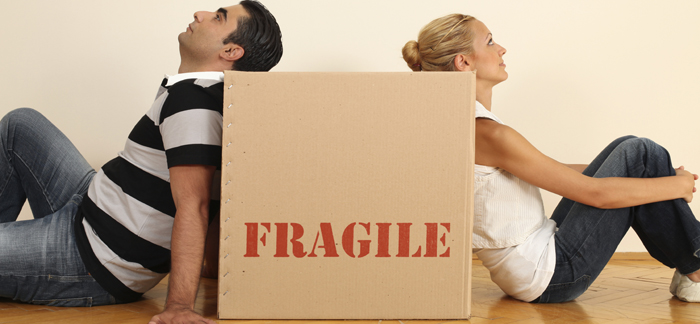Many people see self storage as a solution to the problem of having no house room for things they can't bear to part with.
According to a report on the BBC News website in August people in the UK are leaving their possessions in self storage warehouses for longer than ever. So why are people willing to pay to store things they very rarely use?

Society has always had its hoarders but it seems 21st Century Man is keeping everything from bags full of old clothes to Betamax tapes and back copies of National Geographic.
Storage centres began appearing in the USA in the 1960s and the country now has over 50,000 facilities. They arrived in London in the 1990s but didn't take off across the UK until 2000. Now Britain has over 800 major self storage units, equalling all those in Europe put together.
Data from the UK Self Storage Association suggests that the average length of stay has risen from 22 weeks in 2007 to 38 weeks in 2010. The evidence flies in the face of the popular view that we live in a throw away society, clearly for many that is not the case. But why someone would want to pay good money to store piles of old newspapers and other ephemera is puzzling.
Sentimentality is one explanation. The BBC article cites one case of a magazine editor, Steve Barrett, who moved from London to New York but couldn’t bear to part with his old records and books and what he called ‘assorted sentimental crap’. Steve rented a unit from a storage company in Hammersmith for £70 a month - a year and a half later he’s still paying. "It makes no financial sense. It's an emotional thing. I'm storing up my youth in a big box,” said Steve.
The fashion for minimalistic interiors is another driver for the self storage business. People it seems want to live in clean uncluttered houses but can’t bring themselves to throw away grandma’s old bookcase and Staffordshire figures.
Oliver James, a psychologist interviewed for the BBC article said that the self storage phenomenon can be explained by consumerism’s effect on how we view ourselves.
“Our identity has increasingly become associated with products,” he argues. “Not just the mortgage and the car, but smaller items too. We've confused who we are with what we have," he said.
“It explains why we're so reluctant to throw things away. We feel it might come in handy one day. It feels like it's a little part of yourself even though it's just tat. You wouldn't want to throw yourself away would you?"
But perhaps it’s not that complicated? Making decisions about what to throw away and what to keep are difficult for many of us, so throwing everything into a container and putting it off for another day is very attractive.
There are of course very good practical reasons for using self storage that we are all very aware of but it seems it’s the illogical side of human nature that’s driving the business forward.
Whatever the explanation, the self storage industry is enjoying healthy growth despite the continuing effects of the recession on the rest of the moving business. For those with the capital and access to the right sites the low overheads and relatively swift ROI make self storage an attractive proposition. With the European market apparently wide open someone looks set to make a killing.